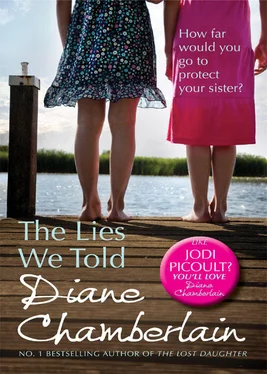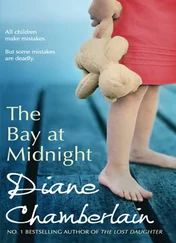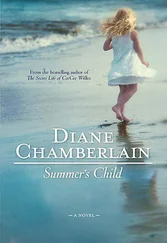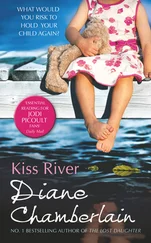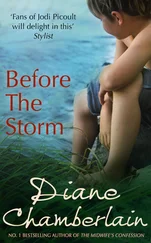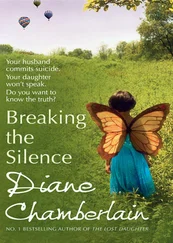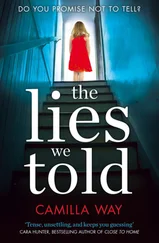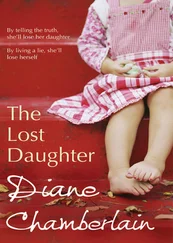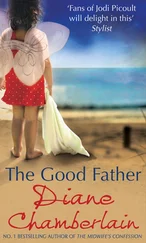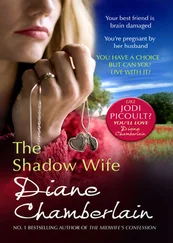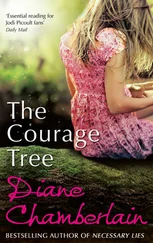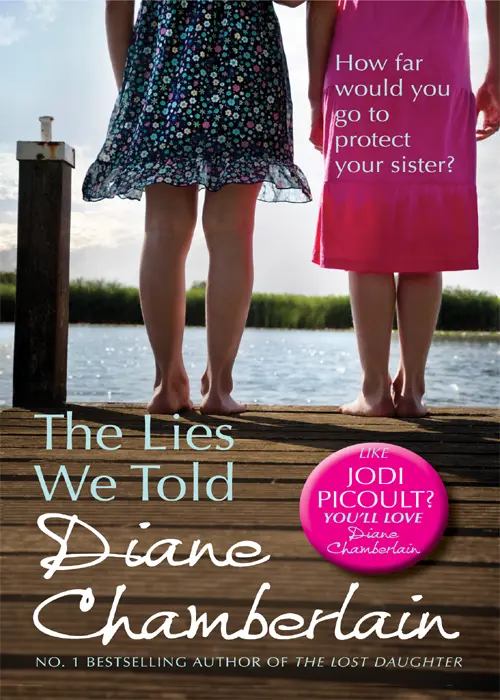
Praise for Diane Chamberlain
Before the Storm
“This is powerful stuff … it is certainly as compulsive and issue-led as Jodi Picoult with whom she is being compared. I couldn’t put it down.”
—The Bookseller
“Chamberlain lays out her latest piece of romantic suspense in a shattered chronology that’s as graceful as it is perfectly paced … her engrossing prose leads the way to redemption.”
—Publishers Weekly
The Bay at Midnight
“This complex tale will stick with you forever.”
—Now Magazine
“Emotional, complex and laced with suspense, this fascinating story is a brilliant read.”
—Closer
“A moving story.”
—Bella
“A brilliantly told thriller.”
— Woman
The Lost Daughter
“A strong tale that deserves a comparison with Jodi Picoult.”
—www.lovereading.co.uk
Every family has a story, told and retold so many times it seems firm and irrefutable. Etched in granite. Here are the bare bones of my family’s story:
My parents were murdered by a masked stranger, who shot them in our driveway.
My sister, Rebecca, is beautiful, wild, coolheaded and fiercely independent. She needs no one to make her happy. She does, however, need danger.
I am sensitive, quiet, brilliant and fearful, in many ways my sister’s opposite. I need safety, protection and a man who loves me.
More often than not, family stories turn out to be etched in sand rather than granite. Even the parts we think are true—even the parts about ourselves—crumble under scrutiny. These are the lies we tell everyone who knows us. These are the lies we tell ourselves.
Diane Chamberlain

www.dianechamberlain.co.uk
To my sister,
Joann Lopresti Scanlon.
We are so lucky to have each other.
As usual, I owe the biggest thank-you to my significant other, John Pagliuca. I don’t think John’s ever said, “Can we talk about it later?” when I’ve needed to think out loud about my story. Thank you, John, for all you do to help me write.
While researching The Lies We Told, I stumbled across an article by emergency room physician Hemant Vankawala, in which he described his experiences working with evacuees in the New Orleans airport after Hurricane Katrina. Dr Vankawala became my gracious expert on medical relief work, and I don’t know how I would have written about the fictional DIDA organisation without him. Other medical advisors were Marti Porter, RN, and paramedic Cass Topinka. Thank you all for being so generous with your time and information, as well as for the work you do.
For helping me learn about my setting, thank you Glen Pierce, Sterling Bryson, Tori Jones, Kim Hennes, Dave and Elizabeth Samuels, Bland Simpson, Dixie Browning and Brooks Preik of Two Sisters’ Bookery in Wilmington, NC.
For coming up with the name ‘Last Run Shelter’, thank you faithful reader and blog commenter, Margo Petrus. Gina Wys helped me understand what life is like after a hurricane. Dave Samuels taught me all I needed to know about helicopters. And Vivian I. Vanove gave me the inside skinny on the Wilmington airport.
For their various contributions, thank you Nellie Mae Batson, Gabe Bowne, Lynnette Jahr, Julie Kibler, Mary Kilchenstein, Ann Longrie, Melinda Smith, Betty Sullivan, Kathy Williamson, and Julia Burney-Witherspoon and her organisation, www. cops-n-kids. org.
For brainstorming help and all-around support and friendship, I’m grateful to the six other members of the “Weymouth Seven”: Mary Kay Andrews, Margaret Maron, Katy Munger, Sarah Shaber, Alexandra Sokoloff and Brenda Witchger.
For their invaluable feedback and for always being there for me, my editor, Susan Swinwood and my agent, Susan Ginsburg.
And finally, thank you Denise Gibbs, who helped in too many ways to count. You rock!
Maya
I KNEW THE EXACT MOMENT DADDY TURNED FROM THE street into the driveway of our house in Annandale, Virginia, even though I was curled up on the backseat of the car with my eyes closed. I was very nearly asleep, a half-fugue state that I wanted to stay in forever to help me forget what I’d done. The rain spiking against the roof of the car was loud, but I still heard the crunch of gravel and felt the familiar rise and fall as the car traveled over the portion of the driveway that covered the drainpipe. We were home. I would have to open my eyes, unfurl my aching fourteen-year-old body and go into the house, pretending nothing was wrong while the truth was, my world had caved in on me. Or so I thought. I had no idea that I was mere seconds away from the true collapse of my world. The moment that would change everything.
Daddy suddenly slammed on the brakes. “What the …”
I sat up, wincing from a sudden bolt of pain in my gut. In the glow of the headlights, I saw my mother running toward the car, her arms flailing in the air. I couldn’t remember ever seeing my mother run before. I’d never seen her look wild like this, her wet, dark hair flattened to her head, her dress clinging to her thighs.
My breath caught in my throat and I let out a soft moan. She knows, I thought. She knows where we’ve been.
My mother yanked the passenger door open and I braced myself for what she would say. She jumped into the car. “Drive!” she screamed, pulling the door shut. “In reverse! Hurry!” I could smell the rain on her. I could smell fear.
“Why?” Daddy stared at her, his profile a perfect silhouette—the wire-rimmed glasses, the slightly Romanesque nose—that would remain in my memory forever.
“Hurry!” my mother said.
“Why are you—”
“Just go! Oh my God! There he is!” My mother pointed ahead of us, and the headlights picked up the figure of a man walking toward our car.
“Who’s that?” Daddy leaned forward to peer into the half-light. “Does he have on a … is that a ski mask?”
“Dan!” My mother reached for the gearshift. “Go!”
I was wide awake now, fear flooding my body even before the headlights illuminated the man’s ice-blue eyes. Even before I saw him raise his arm. Even before I saw the gun. Instinctively, I ducked behind the driver’s seat, arms wrapped over my head, but no matter how loudly I screamed, I couldn’t block out the crack of gunfire. Over and over it came. Later, they said he only had five bullets in the gun, but I could have sworn he had five hundred.
My sharpest memories of that day will always be the blast of that gun, the ice-blue eyes, the silhouette of my father’s face, the skirt of my mother’s dress sticking to her thighs.
And my sister.
Above all, my sister.
I HAD PASSED THE ENORMOUS LOW-SLUNG BUILDING ON Capital Boulevard innumerable times but had never gone inside. Today, though, I felt free and whimsical and impulsive. All the moms in my neighborhood had told me there were great bargains inside the old warehouse. I needed no bargains. Adam and I could afford whatever we wanted. With the income of two physicians—a pediatric orthopedist and an anesthesiologist—money had never been our problem. It wasn’t until I stepped inside the building, the scent of lemon oil enveloping me, that I realized why I was there. I remembered Katie Winston, one of the women in my North Raleigh neighborhood book club, talking about the beautiful nursery furniture she’d found inside. Katie had been pregnant with her first child at the time. Now she was expecting her third. I’ll finally fit in, I thought, as I walked into the building’s foyer, where the concrete floor was layered with old Oriental rugs and the walls were faux painted in poppy and gold.
Читать дальше
